
Agreement to restore powersharing in Northern Ireland can be reached in the short term, Sinn Fein has insisted, but the DUP has cautioned against “quick fix solutions”.
On the first day of talks this year, political parties continued to work towards finding a way to bring the Stormont administration back into action.
Sinn Fein MLA Conor Murphy said his party believes a deal can be reached in the short term, adding that they see “no need” to draw the talks out until the January 13 deadline.
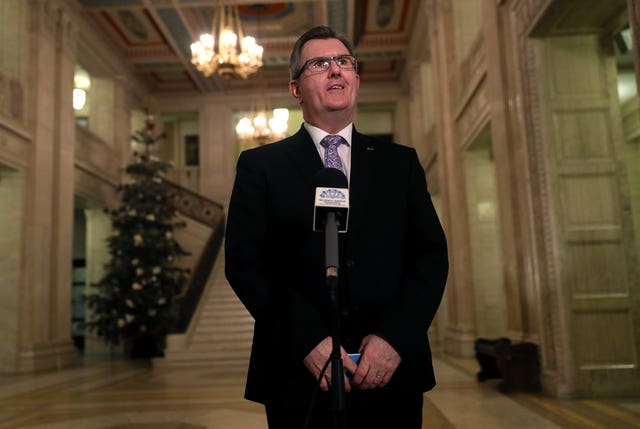
Speaking later, Democratic Unionist Party MP Jeffrey Donaldson said engagements so far have been “very constructive”, but he warned against “quick fix solutions”, and said the parties “need to get it right” to ensure sustainable government.
“We want Stormont to be credible, strong, robust and can withstand the inevitable challenges and difficulties that come down the road,” he said.
SDLP leader Colum Eastwood said it had “always been the case that a deal could have been done within hours”.
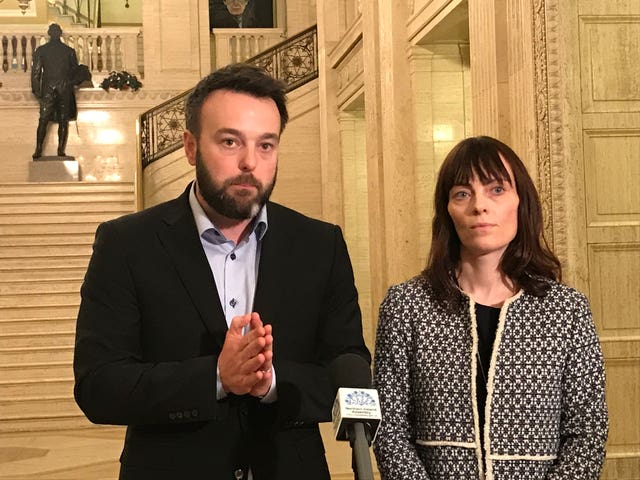
“We’re not in a very different place now than we have been in the last couple of years. It’s a case of political will, there was an election recently, I think that may have changed things,” he said.
The latest process, which was initiated in the wake of the general election, was paused over the festive period after a pre-Christmas deal failed to materialise.
Secretary of State Julian Smith, Irish foreign affairs minister Simon Coveney and the local parties returned to Stormont House on Thursday morning to resume the effort.
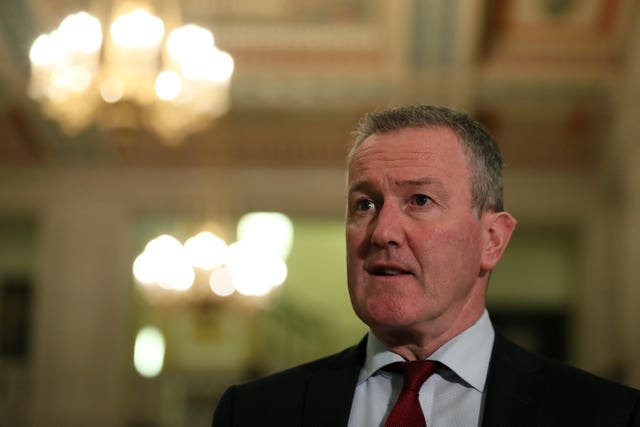
Discussions between the parties continued throughout the day.
Mr Murphy said the issues which remain under discussion include an Irish language act, the assembly’s controversial veto system the petition of concern, a programme for government and what financial resources would be available to any new Executive.
“There are a range of issues which will be discussed in the next couple of days. None of them, I don’t think, need to be exhausted ad infinitum, we need to be bring this to a conclusion. There are pressures continuing to mount in relation to public health, health services and the treatment of staff in the health service. We need to get back working again so we can fix those as quickly as possible,” he said.
Talks to restore a devolved government in Northern Ireland have resumed today at Stormont House. pic.twitter.com/1sSOEZxpgp
— Northern Ireland Office (@NIOgov) January 2, 2020
Mr Donaldson said his party want to see agreement reached “as quickly as possible” but also want to ensure that any agreement is “fair, balanced and sustainable”.
“We are not in the business of snatching at something because there is a deadline, we want Stormont restored and we want it restored as soon as possible,” he said.
“We want to see a settlement, a fair pay award, for health care workers, we don’t see any reason why that should be delayed until Stormont is restored.”
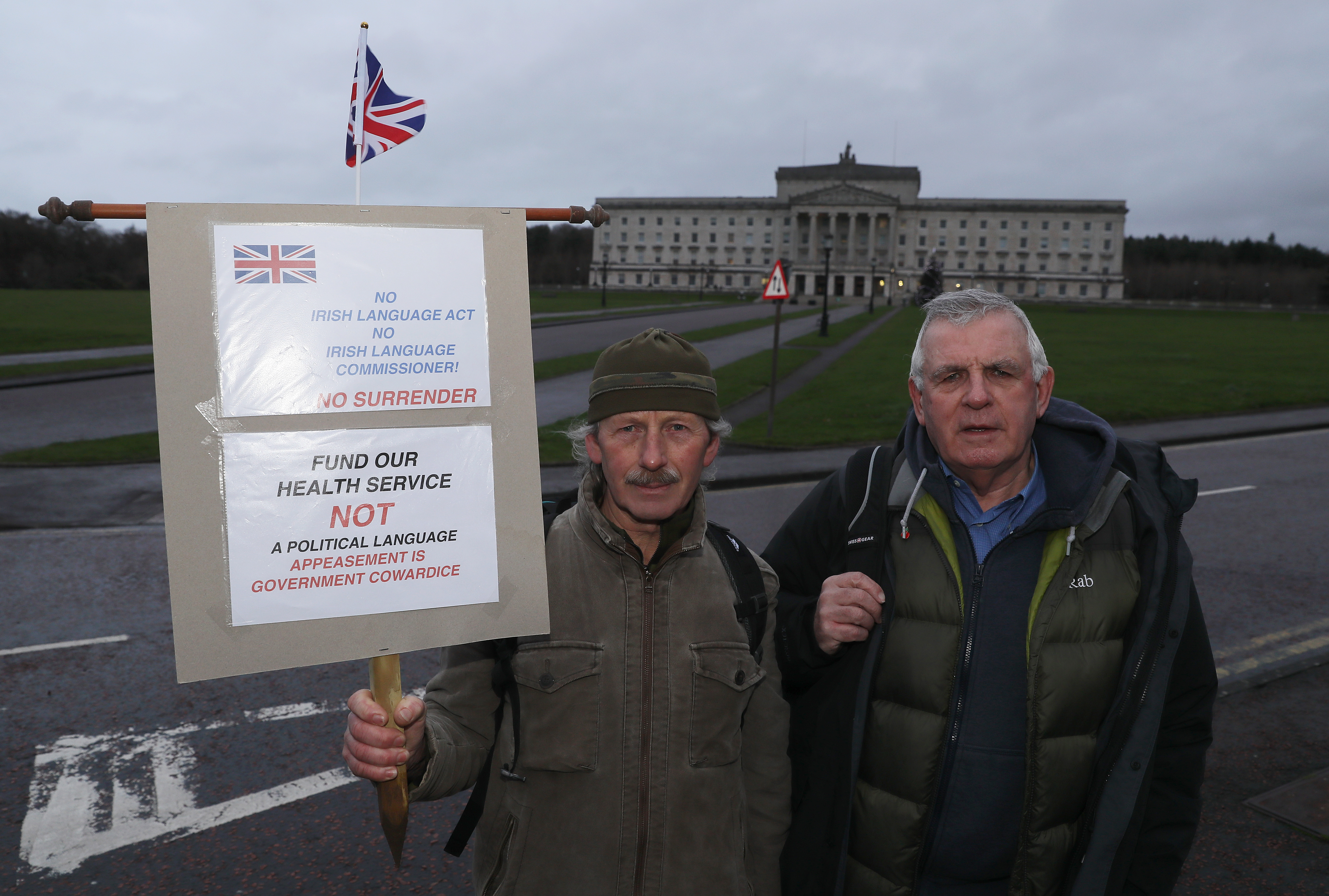
Mr Donaldson said his party favoured reforming the petition of concern, adding that all parties “agree it should be retained as an important safeguard”.
From Thursday morning a number of protesters stating their opposition to an Irish Language Act being included in any potential deal set up camp outside the talks venue holding aloft union flags.
Three years on from the collapse of the devolved government, the Stormont parties have until a January 13 deadline to strike a deal to revive the institutions.
On that date, legislation to give civil servants additional powers to run Northern Ireland’s struggling public services expires and Mr Smith will assume a legal obligation to call a snap Assembly election.
The latest push to restore powersharing broke up the week before Christmas, with UK and Irish governments singling out the DUP as the party standing in the way of a deal.
The party rejected the claims, insisting it would not be “bounced” into a “quick fix” that falls apart when tested.
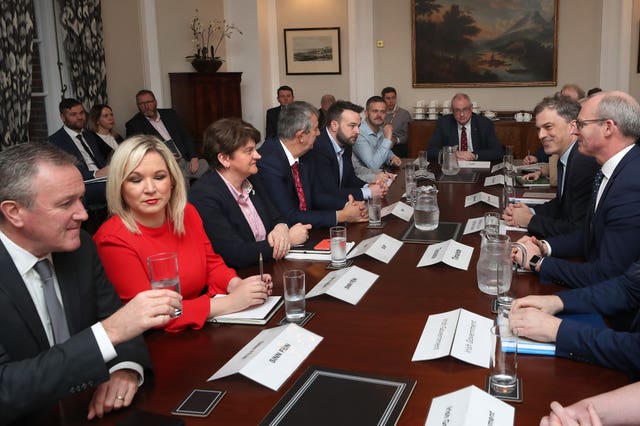
Devolution can only be restored once the DUP and Sinn Fein – the region’s two largest parties – agree terms to re-enter a mandatory coalition executive in Belfast.
The other three main parties – the SDLP, Ulster Unionists and Alliance – are also involved in the talks process convened by the UK and Irish Governments.
While they could take positions in any new executive, their sign-off on a deal is not essential and a government could be formed in their absence, with those parties having the option of going into opposition.
Expectations of a breakthrough rose after the DUP and Sinn Fein both suffered bruising results in the general election.
With many interpreting the outcome as a public judgment on the parties’ failure to do a deal, stalled efforts to restore the institutions appeared to gain fresh momentum in December.
However, proposals to reform a contentious cross-community voting mechanism in the Assembly have emerged as a key sticking point in efforts to finalise an agreement, with the DUP unhappy about what is being countenanced.
The DUP is also seeking changes to ensure the devolved institutions are more stable in future and cannot be readily pulled down.
Proposed legislative protections for Irish language speakers are another crucial element of the negotiations.
The Stormont parties are also seeking firm commitments from the UK Government on a financial package to accompany the return of devolution – money that would likely be targeted at the region’s crisis-hit health service.

Mr Smith and Mr Coveney were in Belfast on New Year’s Day for discussions ahead of the resumption of formal exchanges with the political parties.
Mr Coveney urged the parties to show leadership and generosity.
He said the new year offered a chance for a new beginning and urged all sides not to disappoint the public again.
Stormont imploded three years ago this month when the late Sinn Fein deputy first minister Martin McGuinness resigned in protest at the DUP’s handling of a botched green energy scheme.
That dispute soon widened to encompass traditional rifts over issues such the Irish language and the toxic legacy of the Troubles.
A logjam over proposals to reform the petition of concern voting mechanism was one of the main reasons a deal failed to materialise before Christmas.
It was designed to protect minority rights but politicians have accused each other of misusing it for their own ends.
Discussions around change are focused on making it more difficult for one party to use the petition to block controversial legislation.
The parties are also considering amending Assembly rules to make it harder to collapse the institutions.


Comments: Our rules
We want our comments to be a lively and valuable part of our community - a place where readers can debate and engage with the most important local issues. The ability to comment on our stories is a privilege, not a right, however, and that privilege may be withdrawn if it is abused or misused.
Please report any comments that break our rules.
Read the rules here